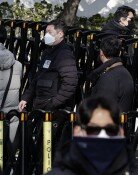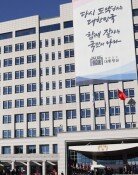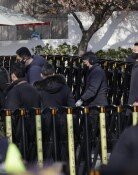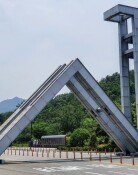[Op-Ed] Tax Cuts for Car Purchases
Car demand is plunging amid the global economic recession. Sales reached 70 million units in 2007 but will likely fall below 60 million this year. The chairmen of the Big Three U.S. automakers GM, Ford and Chrysler came under fire late last year when they used private jets to travel to Washington to ask for financial assistance from the government. Critics blamed their negligent management, as shown by their use of private jets, for triggering their crisis. The U.S. administration and Congress will inject 19.4 billion dollars into the three automakers, while discussion is underway on a second bailout.
Germany, France, China and Japan will also assist their automakers. The most common suggestions are tax cuts and government subsidies. The Korean government will also grant temporary tax cuts to people who purchase new cars to replace aged vehicles from May through December this year. This will cut the prices of vehicles by two million (1,480 U.S. dollars) to three million won (2,220 dollars) per unit depending on price. The government said it will cost less to provide tax assistance preemptively than to do so after the auto industry gets saddled in a crisis, though tax revenue will fall. The public is unhappy over this measure, however, since it will use taxpayers money.
People are highly critical of unions at Korean automakers, which have frequently gone on strike despite handsome paychecks for its members. The average salary of a worker at Hyundai Motor in Korea is higher than that of their counterparts at the companys Alabama plant in the U.S., though the worker in Korea has lower productivity.
Workers at Chinese automakers earn a fraction of what Korean counterparts do on average, but are more productive. At a time when the self-employed are collapsing en masse and non-regular workers and the jobless are suffering dearly, the Korean government cannot blindly subsidize companies whose regular employees earn more than 50 million won (37,000 U.S. dollars) or more per year. Labor and management at these aid-receiving companies should also share the pain and make self-rescue efforts.
Washingtons assistance to the three American automakers is conditional. After U.S. President Barack Obama said his government will provide the additional assistance only when the automakers demonstrate an intent to restructure, GM immediately announced that its 7,500 hourly workers who belong to the United Auto Workers agreed to accept a buyout package and retire. Korean President Lee Myung-bak also said Thursday, I hope labor and management at the automakers will announce bold self-rescue measures to share the pain. It would be more rational that self-rescue efforts come before tax cuts. If labor and management resist, the government must impose sanctions against them.
Editorial Writer Park Yeong-kyun (parkyk@donga.com)







